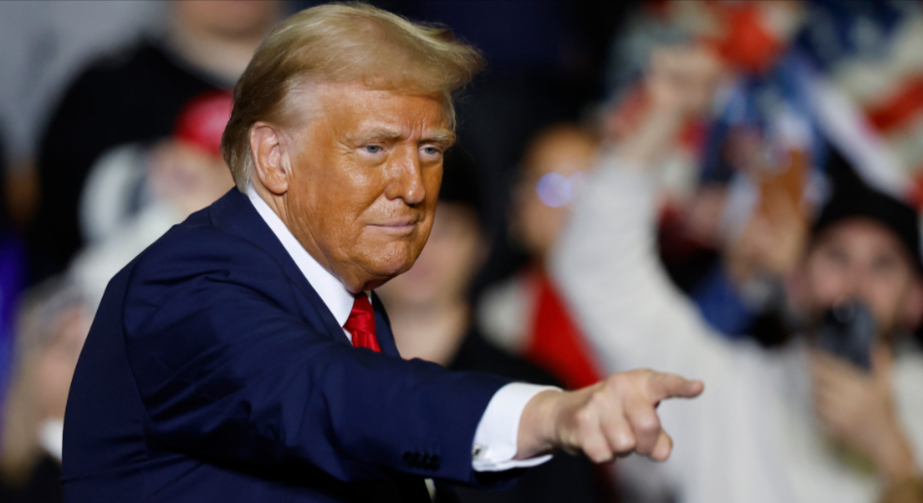Trump Lays Out Plan To Reduce Size of ‘Deep State’

During his 2016 campaign, GOP nominee Donald Trump emphasized a commitment to “draining the swamp,” a broad promise to significantly reduce the entrenched federal bureaucracy.
Trump maintained this goal in 2020, urging voters to elect him again so he could further downsize the federal workforce, though Joe Biden ultimately defeated him.
Now, four years later and with a full term's experience, Trump has reiterated a similar pledge in his successful 2024 campaign. This time, with a clear mandate, he’s setting up a plan aimed at confronting the “deep state.”
In March 2023, Trump declared his intention to move federal jobs out of Washington, D.C., as part of his strategy to break down federal bureaucracy. “Continue Trump administration effort to move parts of the federal bureaucracy outside of the Washington Swamp, just like President Trump moved the Bureau of Land Management to Colorado,” his campaign noted.
The campaign projected that “up to 100,000 government positions could be moved out of Washington.”
Trump later reinforced this goal, stating, “As many as 100,000 government positions can be moved out — and I mean immediately out — of Washington to places filled with patriots who love America,” in a video explaining his agenda.
WATCH:
🇺🇸Trump Targets ‘Deep State’ and Corrupt Washington D.C.
— Sam Mitha (@MithaEXP) November 8, 2024
Targeting Compromised Bureaucrats.
Reformation of FISA Courts.
Expose Hoaxes and Abuses of Power. #TrumpWon
‘Subscribe’ for Exclusive Spaces⁰https://t.co/ad2MBrwjTZ pic.twitter.com/ERIwZD3F4i
The Federal News Network observed that when Trump initially moved Bureau of Land Management jobs, more than 80 percent of those employees chose to stay in Washington, D.C., rather than relocate with BLM.
In anticipation of a second term, Trump worked toward shrinking the federal workforce at the end of his first term. Before the 2020 election, he issued an executive order called “Schedule F,” designed to reclassify middle-management roles within the federal workforce.
Former White House deputy press secretary Hogan Gidley explained that Trump’s 2020 executive order aimed to remove “people in the bowels of the federal government working against this president” and pursuing “their own selfish political agenda,” as reported by the Independent.
“It’s not a secret that we want people in positions that work with this president, not against him,” Gidley said in October 2020. “The federal government is massive, with millions of people — and there are a lot of people out there taking action against this president. When we find them, we will take appropriate action.”
House Speaker Mike Johnson expressed, just before Election Day, that Republicans have a “bold plan” to streamline the federal government if they win congressional majorities and if Trump returns to the White House.
In a broad interview with Just the News, Johnson, a Republican from Louisiana, also discussed plans to “deport” thousands of federal bureaucrats from Washington, relocating them to middle America.
Johnson highlighted that he and GOP leaders seek to move federal offices, employees, and resources closer to the communities they serve and further from the influence of special interest groups that often sway policy and spending.
“There’s a lot of talk about uprooting, you know, these entrenched bureaucracies and putting them out elsewhere around the country,” Johnson stated.
He described this reimagining of the vast federal bureaucracy — which includes over 2 million federal employees and contractors — as aligned with Trump’s vision to assign billionaire entrepreneur Elon Musk to lead a government efficiency office.